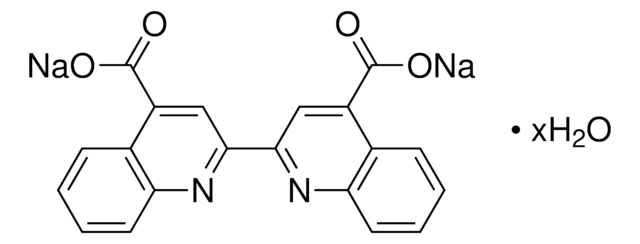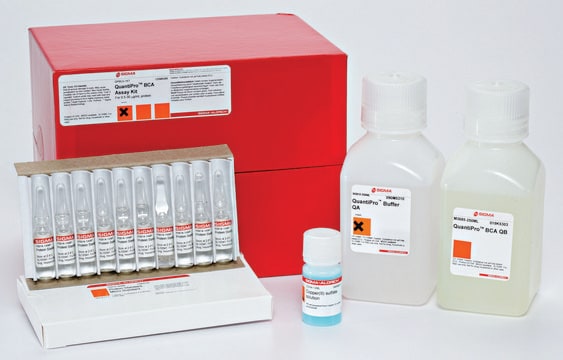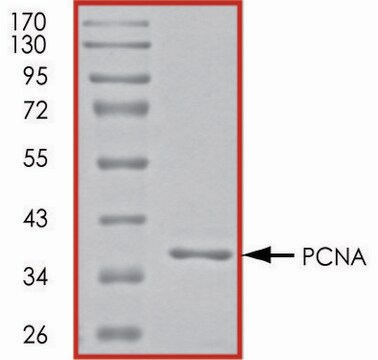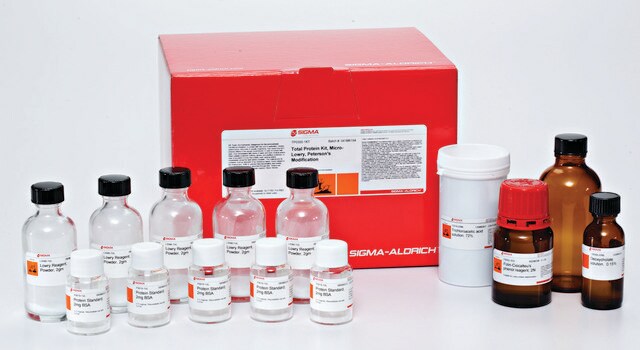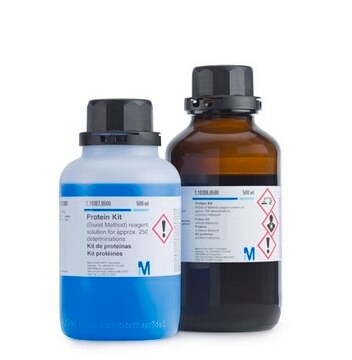Recommended Products
form
liquid
suitability
suitable for determination of protein concentration
General description
Application
- For the determination of total protein content in the process of quantifying bromelain, extracted from the pineapple stem residues using aqueous micellar two-phase systems composed of ionic liquids as co-surfactants.
- For the determination of bovine serum albumin (BSA) in biomimetic calcium phosphate coating co-precipitated on titanium alloy plates.
Features and Benefits
- It is easy to use.
- The color complex is stable.
- There is less susceptibility to detergents.
- It is applicable over a broad range of protein concentrations.
Packaging
Suitability
related product
Signal Word
Warning
Hazard Statements
Precautionary Statements
Hazard Classifications
Met. Corr. 1
Storage Class Code
8B - Non-combustible corrosive hazardous materials
WGK
WGK 2
Flash Point(F)
Not applicable
Flash Point(C)
Not applicable
Certificates of Analysis (COA)
Search for Certificates of Analysis (COA) by entering the products Lot/Batch Number. Lot and Batch Numbers can be found on a product’s label following the words ‘Lot’ or ‘Batch’.
Already Own This Product?
Find documentation for the products that you have recently purchased in the Document Library.
Customers Also Viewed
Protocols
To determine protein content, the Warburg-Christian method refers to measuring protein samples at 280 nm using a spectrophotometer.
Related Content
Products for traditional and alternative protein quantitation techniques available, including BCA, Bradford, Lowry, and more.
Protein quantification methods, reagents, and immunoassay technology for accurately measuring the protein concentrations in a variety of samples.
Our team of scientists has experience in all areas of research including Life Science, Material Science, Chemical Synthesis, Chromatography, Analytical and many others.
Contact Technical Service



